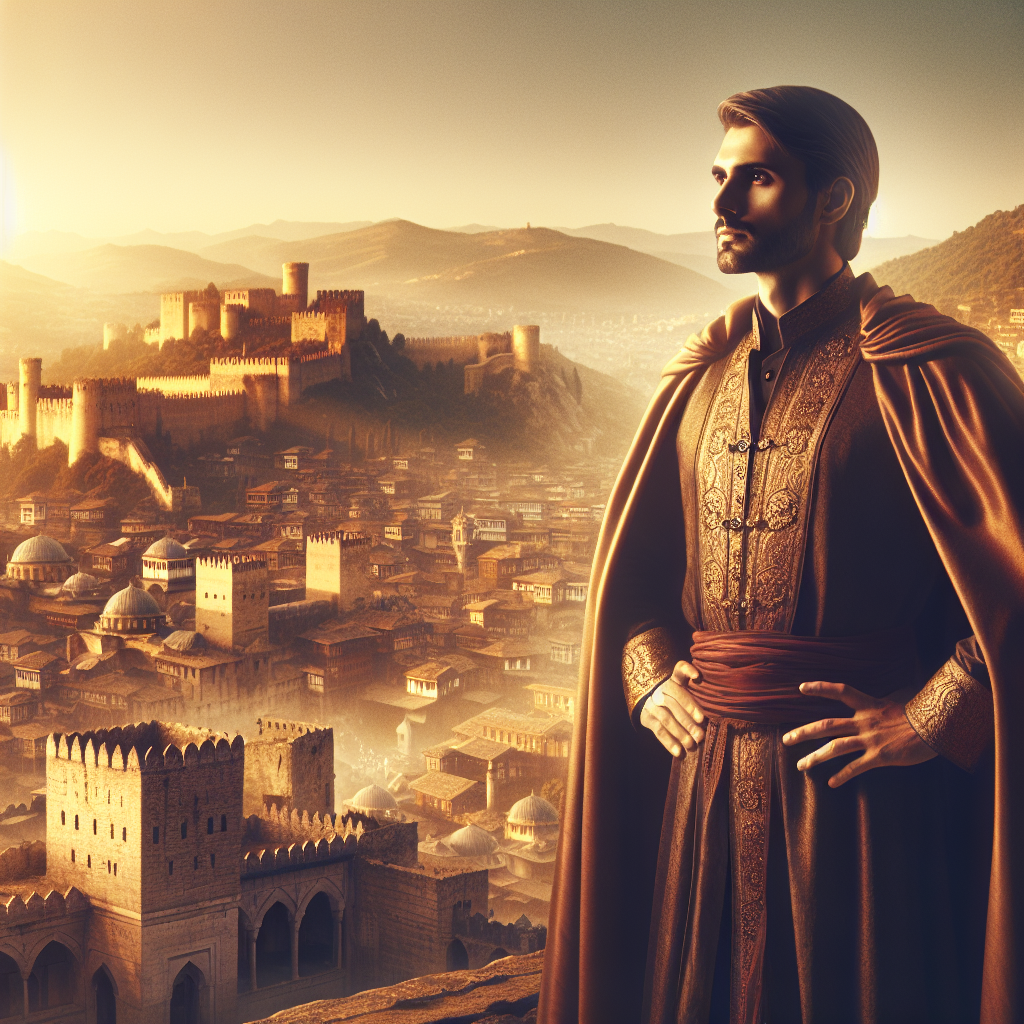History is filled with tales of great leaders and empires, but few have left as enduring a legacy as Osman Ghazi. Known as the founder of the Ottoman Empire, Osman’s vision and leadership laid the groundwork for an empire that lasted over 600 years, influencing regions from Europe to Asia. This post explores the remarkable story of Osman Ghazi, his contributions, and the significant impact he has had on history and culture.
The Establishment of the Ottoman Empire
During the late 13th century, Anatolia was a mosaic of competing principalities and Byzantine territories. Osman, born into this world of political upheaval, rose to prominence by capitalizing on these conflicts. His astute leadership and strategic insight enabled him to establish a strong foothold in the region, ultimately leading to the foundation of the Ottoman state.
Osman’s initial conquests were characterized by a series of calculated and bold maneuvers against local Byzantine forces. These victories not only expanded his territory but also consolidated his power, setting the stage for the larger empire that would follow. His ability to unify various Turkish tribes under his banner was crucial to the establishment of the Ottoman state, marking the beginning of a new era in Anatolia.
The state he founded was not merely a political entity, but a beacon of cultural and religious unity. Osman’s vision went beyond territorial expansion; he sought to create a cohesive society bound by shared values and goals. This foundational period of the Ottoman Empire set the tone for centuries of growth and influence.
Osman’s Leadership and Military Strategies
Osman Ghazi was not just a leader; he was a tactician who understood the art of war and diplomacy. His leadership style blended charisma with pragmatic decision-making, inspiring loyalty among his followers and instilling fear in his adversaries. His ability to anticipate and adapt to changing circumstances was instrumental in his military campaigns.
Among his most notable strategies was the use of ghazi warriors—fervent Islamic fighters who rallied around the cause of spreading Islam and defending their lands. These warriors, driven by both faith and the promise of spoils, were crucial in Osman’s campaigns. Their zeal and discipline allowed Osman to secure key victories and expand his realm.
Osman also adeptly utilized alliances, forging partnerships with neighboring tribes and principalities. By creating a network of allies, he was able to gather resources, intelligence, and military support, further strengthening his position. This strategic amalgamation of force and diplomacy laid a robust foundation for the burgeoning empire.
Cultural and Religious Foundations
Osman Ghazi’s vision extended beyond conquest; he envisioned a society deeply rooted in Islamic values and cultural exchange. He promoted Islam as a unifying force, ensuring that it became the core around which the empire revolved. This religious integration provided a sense of identity and purpose that resonated with diverse populations and fostered cohesion.
Under Osman’s leadership, Islamic institutions flourished. Mosques, schools, and legal frameworks based on Sharia law were established, embedding religious principles into the social fabric of the empire. These institutions not only reinforced religious adherence but also facilitated the governance of a growing population.
Cultural exchange thrived under Osman’s rule, as he encouraged interactions among various ethnic and religious groups. This openness to diversity laid the groundwork for a rich tapestry of cultures and traditions that became the hallmark of the Ottoman Empire. The resulting cultural synthesis enriched the empire and facilitated its expansion into different regions.
The Expansion of the Empire Under Osman’s Successors
Osman Ghazi’s legacy did not end with his death; it was carried forward by his successors, most notably Orhan and Murad I. These leaders built upon Osman’s achievements, expanding the empire’s reach into Europe and the Balkans. Through skillful diplomacy and military prowess, they secured key conquests that broadened the empire’s influence.
Orhan’s capture of Bursa marked a significant turning point, establishing it as the first capital of the Ottoman Empire. This city became a center of commerce, culture, and administration, symbolizing the empire’s growing power. Subsequent capitals like Edirne and Istanbul further reinforced the empire’s dominance and prestige.
The expansion under Osman’s successors was not just territorial but also ideological. They continued to promote the values and principles established by Osman, ensuring that the empire remained a beacon of Islamic governance and cultural prosperity. This continuity of vision and leadership cemented the Ottoman Empire’s place in history.
Osman Ghazi’s Influence on Governance
Osman Ghazi’s influence extended to the governance structures that sustained the empire for centuries. He laid the foundations for a sophisticated administrative system that balanced central authority with local autonomy. This system enabled effective management of diverse territories and populations, ensuring stability and prosperity.
Central to Osman’s governance was the integration of Sharia law with customary laws, creating a legal framework that was both adaptable and consistent. This blend of religious and secular governance provided a stable legal environment that facilitated trade, justice, and social harmony.
The development of a bureaucratic system was another hallmark of Osman’s legacy. By delegating authority and responsibilities to capable administrators, Osman ensured that the empire could function efficiently even as it expanded. This pragmatic approach to governance enabled the Ottoman Empire to thrive and endure over the centuries.
Osman Ghazi as a Symbol of Turkish Identity
In Turkish literature, folklore, and history, Osman Ghazi is more than a historical figure; he is a symbol of national identity and pride. His story has been immortalized in countless works, portraying him as a visionary leader and a paragon of virtue. This cultural portrayal has helped shape Turkish nationalism and collective memory.
Osman’s legacy resonates in contemporary Turkish culture and politics, serving as a touchstone for discussions about identity and heritage. He embodies the ideals and values that have guided the nation through times of change and challenge. His enduring influence reflects the importance of historical narratives in shaping modern identities.
The continued relevance of Osman’s legacy underscores the dynamic interplay between history and nationalism. By celebrating Osman and his achievements, Turkey reinforces its connection to a rich and storied past, inspiring future generations to uphold these cherished traditions.
The Long-Term Impact of Osman Ghazi’s Legacy
The longevity and influence of the Ottoman Empire can be traced back to Osman Ghazi’s foundational principles. His emphasis on unity, governance, and cultural exchange created a resilient framework that allowed the empire to flourish for centuries. These principles not only supported the empire’s growth but also enriched the broader cultural and scientific landscape.
The Ottoman Empire made significant contributions to art, architecture, science, and culture, leaving an indelible mark on global history. Innovations in these fields were driven by the empire’s cosmopolitan nature and commitment to excellence. This legacy of creativity and achievement continues to inspire and inform modern scholarship and exploration.
Osman’s impact extends beyond the borders of the former Ottoman Empire, influencing global history and intercultural relations. His legacy serves as a reminder of the power of vision and leadership in shaping the course of human events. By studying Osman’s life and accomplishments, we gain insights into the enduring challenges and triumphs of civilization.
Osman Ghazi’s Legacy in Modern Times
Osman Ghazi’s legacy remains a potent force in modern Turkey and the global Turkish diaspora. His contributions are celebrated in cultural events, educational programs, and public commemorations that honor his memory and achievements. These celebrations serve to strengthen community bonds and affirm shared values.
Osman’s role in shaping national identity and historical narrative is evident in ongoing debates about Turkey’s place in the world. His legacy provides a touchstone for discussions about sovereignty, governance, and cultural heritage. By engaging with Osman’s story, contemporary audiences gain a deeper understanding of their own identities and aspirations.
Commemorations of Osman’s legacy offer opportunities for reflection and renewal, encouraging individuals and communities to connect with their past and envision their future. These events underscore the importance of preserving historical narratives and cultural traditions, ensuring that Osman’s contributions continue to inspire and guide future generations.
Conclusion
Osman Ghazi’s enduring legacy is a testament to the power of vision, leadership, and cultural exchange in shaping world history. His foundational principles laid the groundwork for a lasting empire that influenced regions from Europe to Asia. The Ottoman Empire’s contributions to art, architecture, and culture continue to resonate in our modern world, reflecting the enduring impact of Osman’s vision.
By exploring Osman’s life and achievements, we gain valuable insights into the complexities and triumphs of human civilization. His story serves as a reminder of the importance of preserving historical narratives and cultural traditions for future generations. In celebrating Osman’s legacy, we honor his contributions and ensure that his influence endures for centuries to come.
Read More :: Read More Osman Ghazi Blog.
Osman’s Dream: The History of the Ottoman Empire
A books on Osman Ghazi, the Ottoman Empire, and related historical themes available on Amazon that may interest you:
Author: Caroline Finkel
Link: Osman’s Dream







